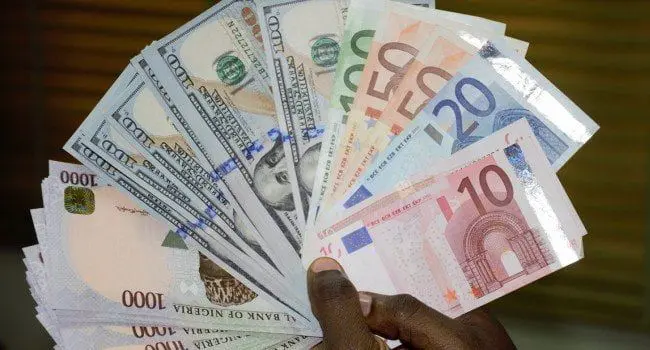
Aboki Naira to Dollar Black Market Exchange Rate Today, 11th September 2025
The Nigerian Naira continued to experience relative stability in the parallel market, commonly referred to as the black market, on Thursday, with the US Dollar trading at an average selling rate of ₦1,535.
This rate, widely tracked via AbokiFX platforms and Bureau de Change (BDC) operators, reflects a marginal uptick from the previous day’s levels but remains below recent peaks observed earlier in the week.
Trending Now!!:
According to reports from major trading hubs including Lagos, Abuja, Port Harcourt, and Kano, parallel market dealers are buying the Dollar at approximately ₦1,530 and selling at ₦1,535.
These figures are consistent across multiple sources monitoring Aboki (street trader) activities, highlighting the persistent demand for foreign currency amid Nigeria’s economic challenges.
For context, this means that exchanging $1,000 would cost around ₦1,535,000 today, a figure that underscores the Naira’s ongoing depreciation pressures since the start of 2025.
The black market rate stands in stark contrast to the official Central Bank of Nigeria (CBN) rate, which remains significantly lower at around ₦1,514 per Dollar on the Investors and Exporters (I&E) window.
This disparity, often exceeding 1-2%, continues to drive Nigerians—ranging from importers and travelers to small businesses—toward the parallel market for more accessible forex, despite regulatory warnings from the apex bank to use authorized channels.
Over the past week, the black market Dollar has fluctuated between a low of ₦1,495 on September 8 and a high of ₦1,528 on September 3, according to historical data from currency tracking platforms.
Today’s rate of ₦1,535 represents a slight 0.3% increase from September 10’s ₦1,530 selling price, potentially influenced by seasonal demand spikes ahead of the holiday season and lingering effects of global oil price volatility—Nigeria’s primary export earner.
Economists attribute the Naira’s resilience in recent days to improved foreign exchange inflows from remittances and a modest rise in Nigeria’s forex reserves for the ninth consecutive week, as reported by local financial outlets.
However, broader pressures persist, including reduced foreign direct investment due to bureaucratic hurdles, import dependency, and market speculation. The International Monetary Fund (IMF) has projected Nigeria’s GDP growth at 3.2% for 2025 but flagged currency volatility as a key risk factor.
In related developments, former President Olusegun Obasanjo recently called for a unified African currency to reduce reliance on the US Dollar, speaking at the Intra-African Trade Fair in Algiers.
This comes as the Naira hit a six-month high of ₦1,506.84 on the official market earlier this week, signaling some stabilization efforts by the CBN.
For everyday Nigerians, the black market rate directly impacts the cost of imported goods, international education, and travel.
A family sending a child abroad for studies, for instance, might need to budget an extra ₦15,000-20,000 per $1,000 compared to official rates. Businesses in sectors like retail and manufacturing are also feeling the pinch, with higher input costs fueling inflation concerns.
Experts advise caution when dealing in the parallel market, recommending transactions only with licensed BDC operators and verifying rates through trusted platforms like AbokiFX or Nairatoday.com to avoid scams. “While the black market offers liquidity, it’s volatile—always negotiate and stay informed,” said a Lagos-based forex analyst.
As Nigeria navigates these economic headwinds, all eyes remain on upcoming CBN interventions and global economic cues, including potential US Federal Reserve rate decisions.
Stay tuned for updates, as rates can shift rapidly throughout the trading day.


